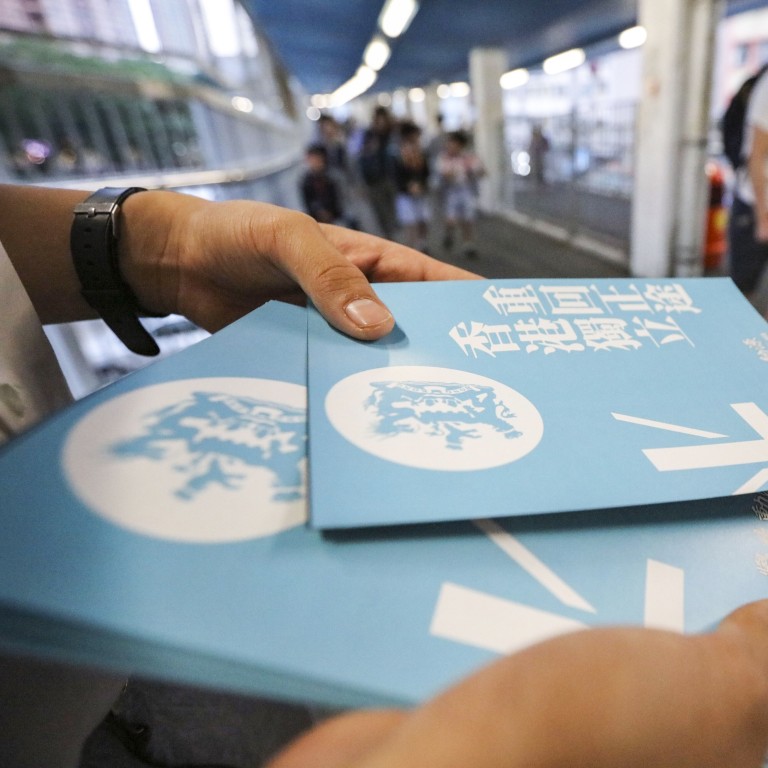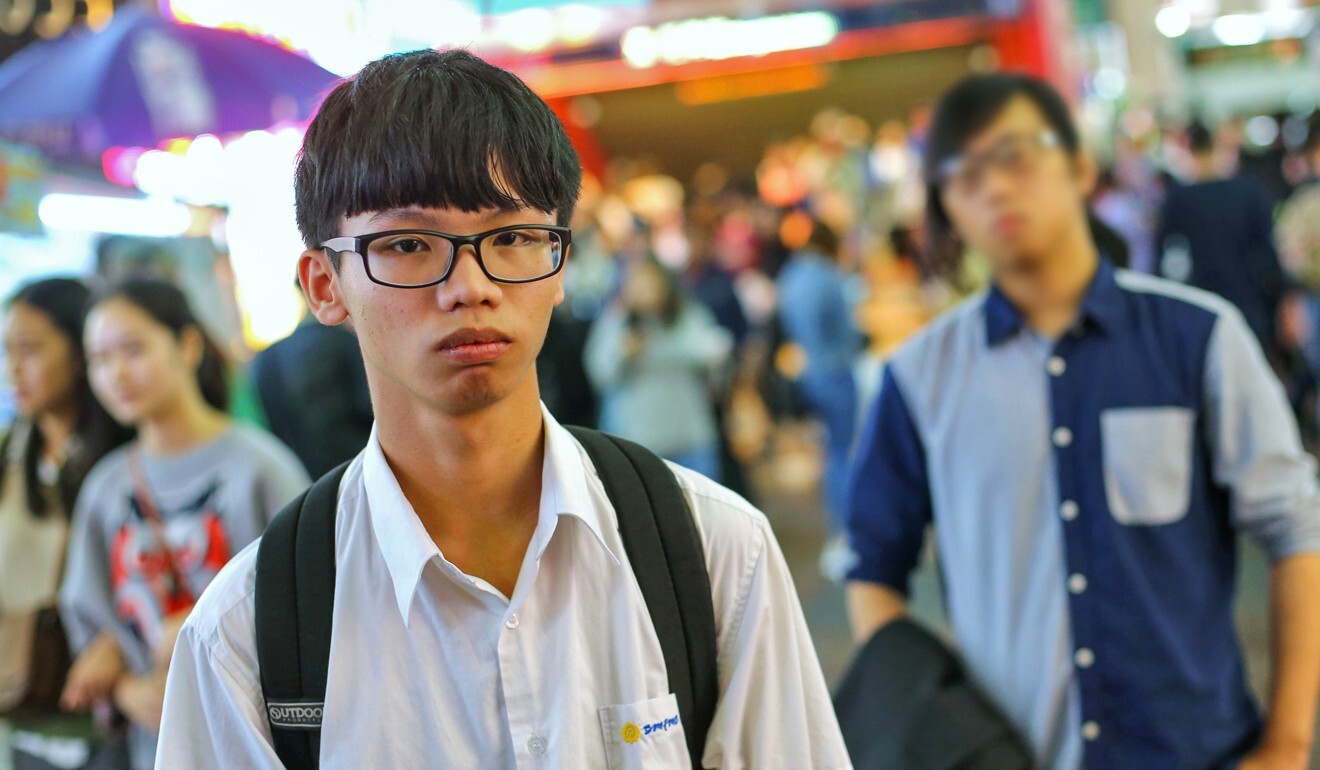
Who are Studentlocalism and are they a national security threat for Hong Kong?
- Little-known pro-independence group is now under the spotlight after arrests of former members over alleged breach of national security law
- Group had called for separation from mainland China through ‘courageous and militant resistance’, before it disbanded hours before new legislation kicked in
Tony Chung Hon-lam and Ho Nok-hang, Studentlocalism convenor and spokesman respectively before its break-up, were among three men and one woman, aged 16 to 21, detained on Wednesday on suspicion of organising and inciting secession.
As of Thursday evening they were still being detained for questioning. A police source said the four were suspected of being involved in another separatist group called the Initiative Independence Party. In its declaration, the group said it was founded by former Studentlocalism members who were all based overseas.

05:50
What you should know about China's new national security law for Hong Kong
Critics called the arrests political persecution that would force more young people to take a militant path towards independence.
Studentlocalism, which previously advocated Hong Kong independence by “courageous and militant resistance”, was disbanded on June 30, hours before the Beijing-imposed law came into effect, banning acts of secession, subversion, terrorism, and collusion with a foreign country to endanger national security.
It dismissed all members in Hong Kong and said only its overseas chapters in Taiwan, the United States and Australia would continue to operate. Not much has been reported about the group since.
“Effective from today, all members in Hong Kong will be dismissed and all its affairs will be passed on to members overseas to continue with the operation,” the group’s announcement had said.
Lawyers challenge arrests of former Studentlocalism members
According to its Facebook profile, Studentlocalism strived to be a student group advocating localism, with the ultimate goal of setting up a “Republic of Hong Kong”. It also claimed it would support and take part in all forms of “effective resistance”.
Chung had begun advocating localism since 2016 when he was still a student at Buddhist Mau Fung Memorial College. The group reportedly had about 20 to 30 members, but with more than 17,000 followers on its Facebook page.
Tony Chung might have been a nobody in the past. But now Beijing has helped to make him famous
Activist-turned-district councillor Henry Wong Pak-yu, who claims to have known Chung for some four years, said: “I don’t think Chung is a radical. He is only an ordinary young man holding ideas that are not accepted by the authorities.
“What has he done? He just advocates some ideas. Is our country so weak that it will collapse if he is allowed to advocate his ideas?”
Another friend, who declined to be named, said: “He might have been a nobody in the past. But now Beijing has helped to make him famous.”

Chung once said in an interview last year that his parents were aware of what he was doing but did not support him.
In a recent interview with Tawian-based online platform Crossing, Chung, 19, said he regarded those born around the turn of the century as the “last generation of Hong Kong people”, and that he felt compelled to protect the city.
“If the anti-extradition bill campaign fails, and other social movements that follow also fail, Hong Kong will be losing its democracy, freedoms, and human rights. Under Beijing’s influence and assimilation of local culture, the next generation will not consider themselves Hongkongers,” he said in the interview.
First person charged under new legislation is motorcyclist arrested during July 1 protest
Riding on the tide of localism, the group in its early days called on students to set up “concern groups” in schools to “explore Hong Kong independence” as the first drive towards promoting separation from mainland China.
“We want to engage student unions to promote independence and to hold discussion panels, and invite well-known localist and pro-independence activists to speak,” Chung said in a 2016 interview.
But the mainstream media did not take Studentlocalism and Chung seriously, and coverage was never big. Chung, however, maintained that mainland authorities were eyeing them.
In 2018, the group claimed that families of two of its members were warned by mainland Chinese law enforcement agents during a visit across the border that the pair had to “stop their political activities”.
Last year, Chung was arrested for allegedly damaging a national flag owned by pro-Beijing activist group Defend Hong Kong Campaign during a protest outside the Legislative Council in May. He was charged with criminal damage.
As Hong Kong plunged into months of civil unrest brought on by the now-withdrawn extradition bill, Chung and his group, as one of the most vocal critics of the government, started receiving more media attention.
He flew to Taiwan several times last year, including once attending a seminar hosted by a Taiwanese pro-independence group. He said he wanted to establish cooperation with activists from the self-ruled island.
As the national security law loomed for Hong Kong in May, Studentlocalism tried to organise rallies in June to oppose the legislation and also mark the anniversary of the anti-government movement.
The rallies however fell through after a police ban.

